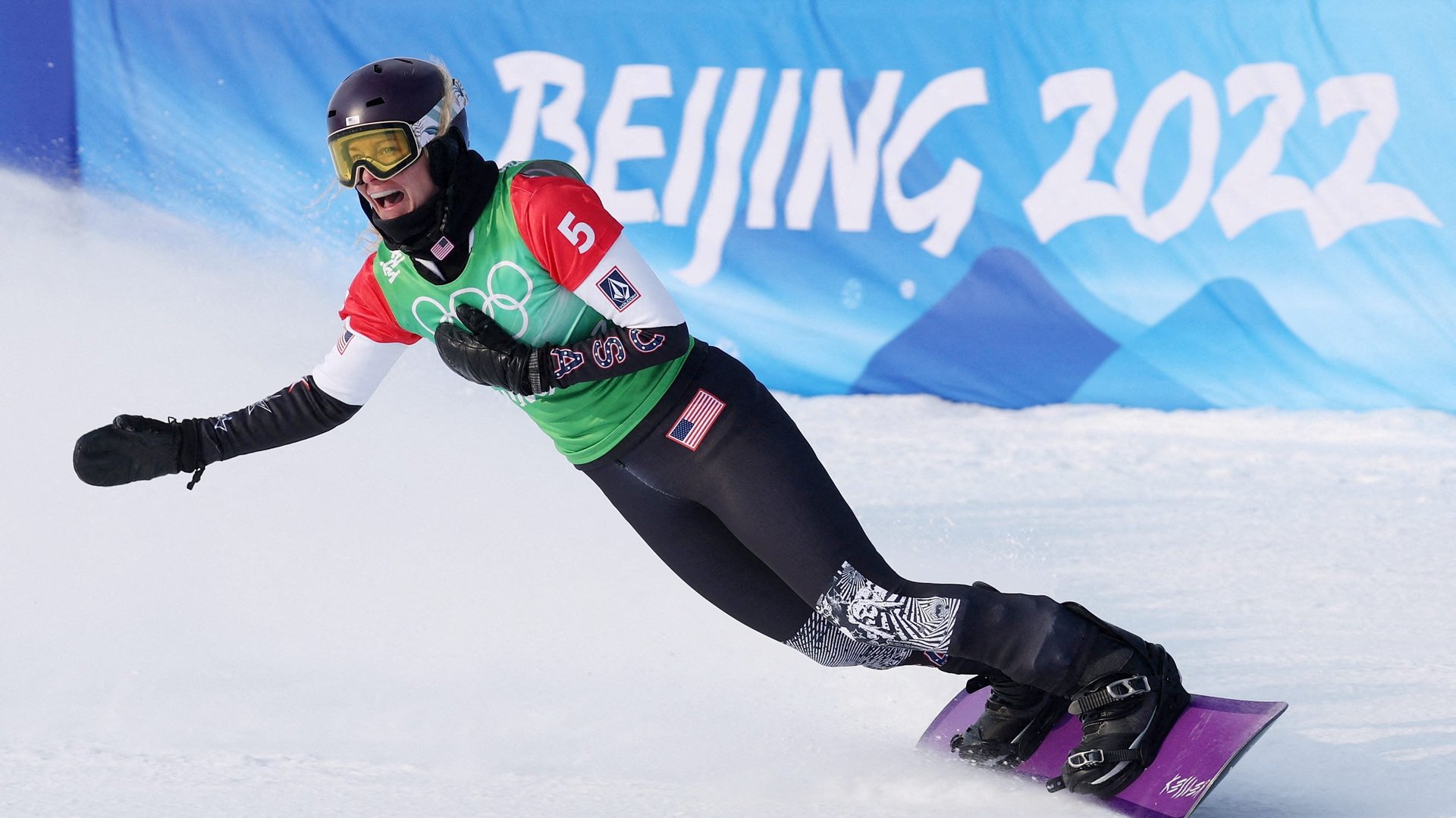The Winter Olympics offer lessons in professional redemption
When Lindsey Jacobellis won her first gold medal in snowboarding for the US on Wednesday (Feb. 9), her accomplishment was hailed as a redemption story. The 36-year-old athlete had narrowly missed her chance in 2006, and had not won since.


When Lindsey Jacobellis won her first gold medal in snowboarding for the US on Wednesday (Feb. 9), her accomplishment was hailed as a redemption story. The 36-year-old athlete had narrowly missed her chance in 2006, and had not won since.
But she said she wasn’t seeking redemption. Doing so, she told the New York Times, would have distracted her from the “task at hand.”
The intense pressures elite athletes face to succeed are perhaps most visible at the Olympics, where years of training often come down to a performance that lasts just a few minutes. But coming back from defeat and failure, or at least attempting to do so, is also a part of their job. Redemption or not, there is much to learn from athletes’ approaches to recovering from setbacks.
The Olympics present a unique psychological challenge
“Wouldn’t it just be nice if the media didn’t harangue me for something that happened 12 years ago?” Jacobellis asked at the 2018 Winter Games.
The Olympics are unique in terms of public perception, compared to other high-level competitions. “Whether the athlete wants it to our not, it becomes the defining moment of their career to the average fan,” says Mark Ayogi, a sports psychology professor at the University of Denver who has worked with Olympic teams and athletes.
Nathan Chen’s golden advice
US figure skater Nathan Chen also won gold today (Feb. 10), after telling the New York Times he was trying not to obsess over winning. He had finished fifth at the 2018 Olympics, with what he described as a “disastrous” performance.
Chen shared a piece of advice from fellow Olympian Evan Lysacek, who encouraged him to think about life after the games: “Win or lose, you’re going to go home, and you’re going to continue the life that you had.”
There’s no one rule or formula for dealing with setbacks when you’re competing among the best of the best, says Ayogi. “There’s only what people have found works for them.” But it can be useful for athletes to put things in perspective, as Jacobellis and Chen have. When athletes think of their profession as what they do, rather than who they are, they may have an easier time “returning to a functional state quicker,” he says.
Mikaela Shiffrin faced two difficult losses
Whereas Jacobellis and Chen both recovered from past setbacks, skier Mikaela Shiffrin is grappling with major losses for the first time. The two-time gold medalist has failed to finish two races, and was visibly devastated in a subsequent interview.
Shiffrin’s consistent success has given the public the impression that she’s invincible, and will be able to nail her races every time, says Elizabeth Ward, a psychologist who works with elite athletes. But this isn’t the case for every athlete, “and certainly not for someone who has high expectations for herself, who’s used to winning, and feels a great deal of pressure.”
In addition to dealing with the additional psychological pressure affecting all athletes this year—from upended training schedules to the isolation of competing during the pandemic—Shiffrin is also competing without her father, who died last year.
The skier told the Associated Press she paid close attention when gymnast Simone Biles dropped out of several events at last summer’s Olympic Games due to mental health concerns. Most people didn’t think it was even possible for Biles to miss out on gold, Shiffrin said: “And what I know from that kind of pressure is: It is not easy to win. Ever.” She competes in the super-G event tomorrow (Feb. 11).
Elite athletes “certainly have long histories of coming back from setbacks,” Ward says, adding pretty much every professional athlete she’s worked with has dealt with injuries, losses, and even egregious mistakes. Overcoming that is “part of getting to where they are.”